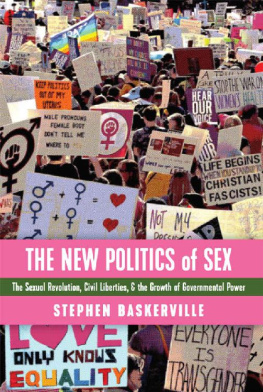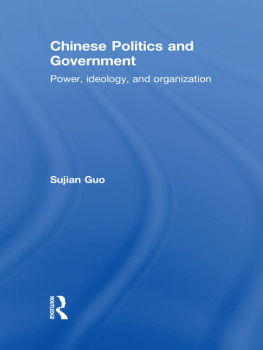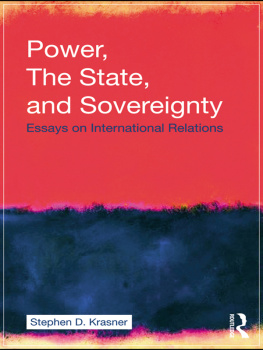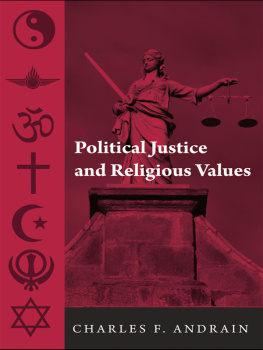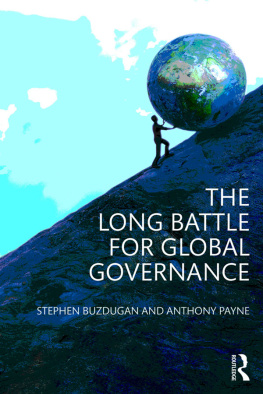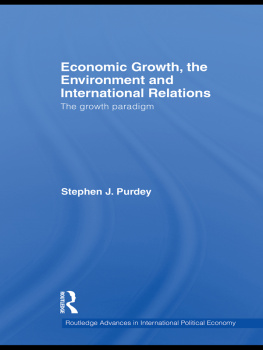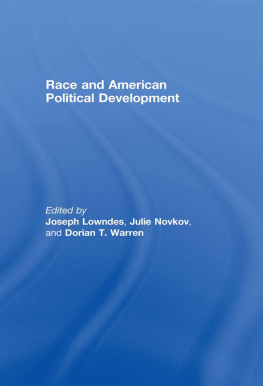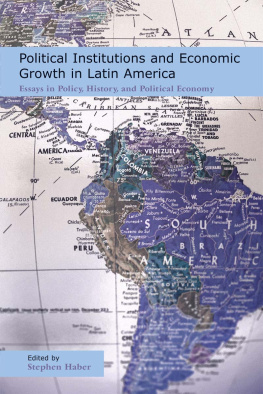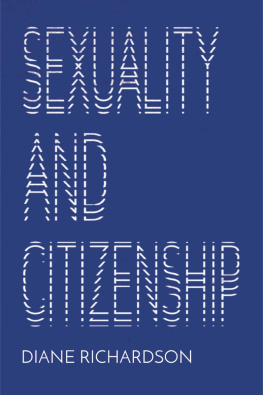THE NEW POLITICS OF SEX
The Sexual Revolution, Civil Liberties, and the Growth of Governmental Power

THE NEW POLITICS OF SEX
The Sexual Revolution, Civil Liberties, and the Growth of Governmental Power
by
Stephen Baskerville


First published in the USA
by Angelico Press 2017
Stephen Baskerville 2017
All rights reserved
No part of this book may be reproduced or transmitted,
in any form or by any means, without permission.
For information, address:
Angelico Press
4709 Briar Knoll Dr.
Kettering, OH 45429
pbk: 978-1-62138-287-4
cloth: 978-1-62138-289-8
ebook: 978-1-62138-288-1
Cover design: Michael Schrauzer
contents
F or I oana
Can two walk together, except they be agreed?
Amos 3:3
As political and economic freedom diminishes, sexual freedom tends compensatingly to increase.
Aldous Huxley, Brave New World
To be able to destroy with good conscience, to be able to behave badly and call your bad behavior righteous indignationthis is the height of psychological luxury, the most delicious of moral treats.
Aldous Huxley, Crome Yellow
Introduction
Any man of genius is paralyzed immediately by the thought that his efforts will win him punishment rather than rewards.
Evariste Huc, Christian missionary
Frankly, it is irritating that anybody would be distracted by which statistics are accurate.
US Senator Claire McCaskill
WITH ASTONISHING SPEED the public agenda of the Western world and beyond has come to be dominated by what Newsweek magazine calls the politics of sex. Demands to recognize same-sex marriage, liberalize abortion laws, and open military units to women and homosexuals are only the most salient manifestations of a much larger trend, whose full dimensions we do not yet understand. The extraordinary spectacle we have seen over five decades is the emergence of a political agenda and ideology that derives political power from demands to control and change the terms of sexuality.
Few people today need to be told about the sexualization of culture. Images of sex surround us, and they are deplored by many across the spectrum. Less noticed, and very poorly understood, is how the demand for unlimited sexual freedom is being politicized by radical ideologies and exploited by governments, whose operatives are able to greatly increase their power as a result. One can welcome this development or deplore it, but there can be no doubt that it is taking place, even though scholars and journalists across the spectrum seem determined to avert their eyes.
For decades, sophisticated people have chortled as an assortment of moralists, reactionaries, and religious zealots warned that unrestricted sexual indulgence would lead to social turmoil, tyranny, and civilizational decline. The argument of this book is that matters turned out to be not so simple as the sophisticates thought and that the moralists, reactionaries, and religious zealots have turned out to be broadly correct, but that this process is unfolding in ways somewhat different from what they too expected, to the point that these Cassandras have often been strangely blind to the fulfillment of their own prophecies. Indeed, many of those most vocal in warning about the dangers of the Sexual Revolution have not only failed to understand its full dynamic; some of their direst warnings are being fulfilled with little opposition in part because even the Cassandras themselves have sometimes been made unwitting accomplices in advancing the very trend they deplore.
This book is an attempt to step back and gain a perspective on the larger phenomenon of how not only our society but particularly our politics has been pervaded by sexual ideology and the impact of almost unlimited sexual freedom on our political culture, public policy, and government machinery.
It does not claim to be exhaustive. A thorough critique of this phenomenon is too large for one book, and each subject deserves more focused treatment. The aim here is to show the larger pattern created by sexual political ideology and the similarities that emerge from its divers manifestations. It is necessarily an overview, therefore, and not all points are treated as thoroughly as I would like. Some topics have been researched by qualified scholars, and I have drawn freely upon their work. Elsewhere, the necessary research has not yet been undertaken, often because the right questions have not been asked. Partly for this reason, the few scholars and journalists who write critically about some manifestations of sexual radicalism are usually unaware of parallels to their findings elsewhere, and so even they do not see that what they have discovered is only one piece of a larger puzzle: the arrival of a new political ideology.
A major reason is fear. One feature of sexual politics is the almost complete absence of critical scholarship that approaches it from any viewpoint other than enthusiastic advocacy. Ostensibly objective scholars are often active participants and promoters of the phenomenon they should be studying and understanding critically. Scholars who refrain from endorsing sexual liberation and insist on analyzing these subjects from a detached perspective find it almost impossible to publish their work and are quickly driven from the universities. Some subjects are not only undebatable; they are unresearchable, writes Phyllis Schlafly,
The fact is that the Western academic world today is not an open society of free inquiry and critical thinking. It is largely closed, inbred, and controlled by heresy-hunters who vet scholarship according to a litmus test of political doctrine and punish heterodoxy with ostracism. Contrary to the accepted wisdom of conservative critics, this is not driven primarily by the soft targets toward which those conservatives usually direct their complaint: Marxism, racial militancy, multiculturalism. These are now relatively pass academic fashions, and few risks are incurred by criticizing them. Of all the radical ideologies that seek to control the institutions of learning today, wrote the late Robert Bork, feminism is by far the strongest and most imperialistic, its influence suffusing the most traditional academic departments and university administrations. The vanguard of academic bolshevism todaylike the vanguard of leftist politics generallyis sexual.
Certainly no shortage of academic attention is lavished on sexual matters; quite the contrary. Like all ideologies, sexual radicalism is spread by cadres of academic ideologues. Novel disciplines like womens studies, gender studies, and queer studies recast all knowledge as sexual-political grievances, and sexual activists have colonized other disciplines, where they exert a veto power over what others may write and say. This is true foremost in the social sciences and humanities but even extends to the natural sciences.
While these topics now dominate academic discourse, the clearest indication of an unhealthy environment is that scholars refuse or fear to ask the awkward questions. Among false statistics the hardest of all to slay are those promoted by feminist professors, writes Christina Hoff Sommers. One reason... is that reasonable, evidence-backed criticism is regarded as a personal attack.
Next page
